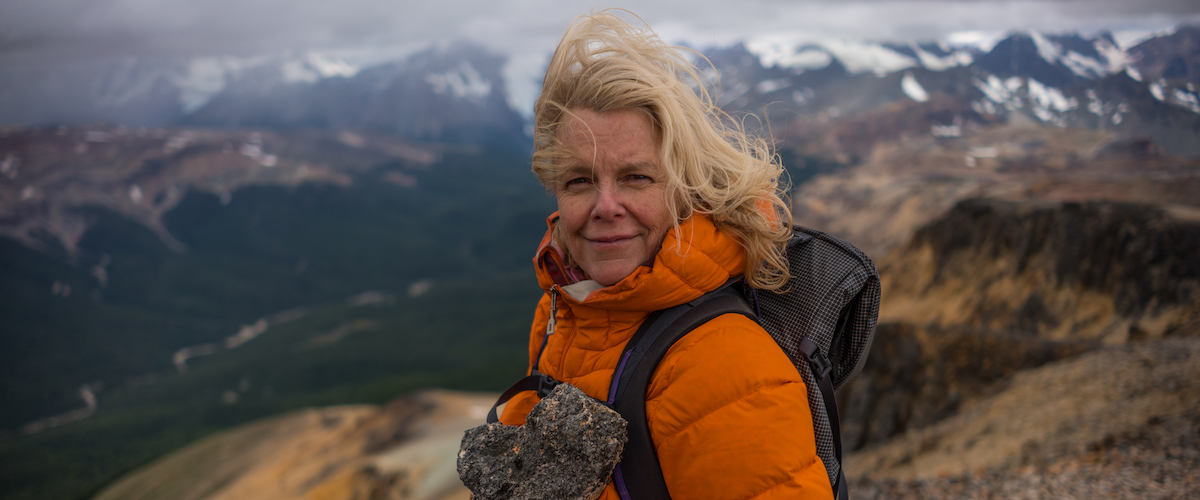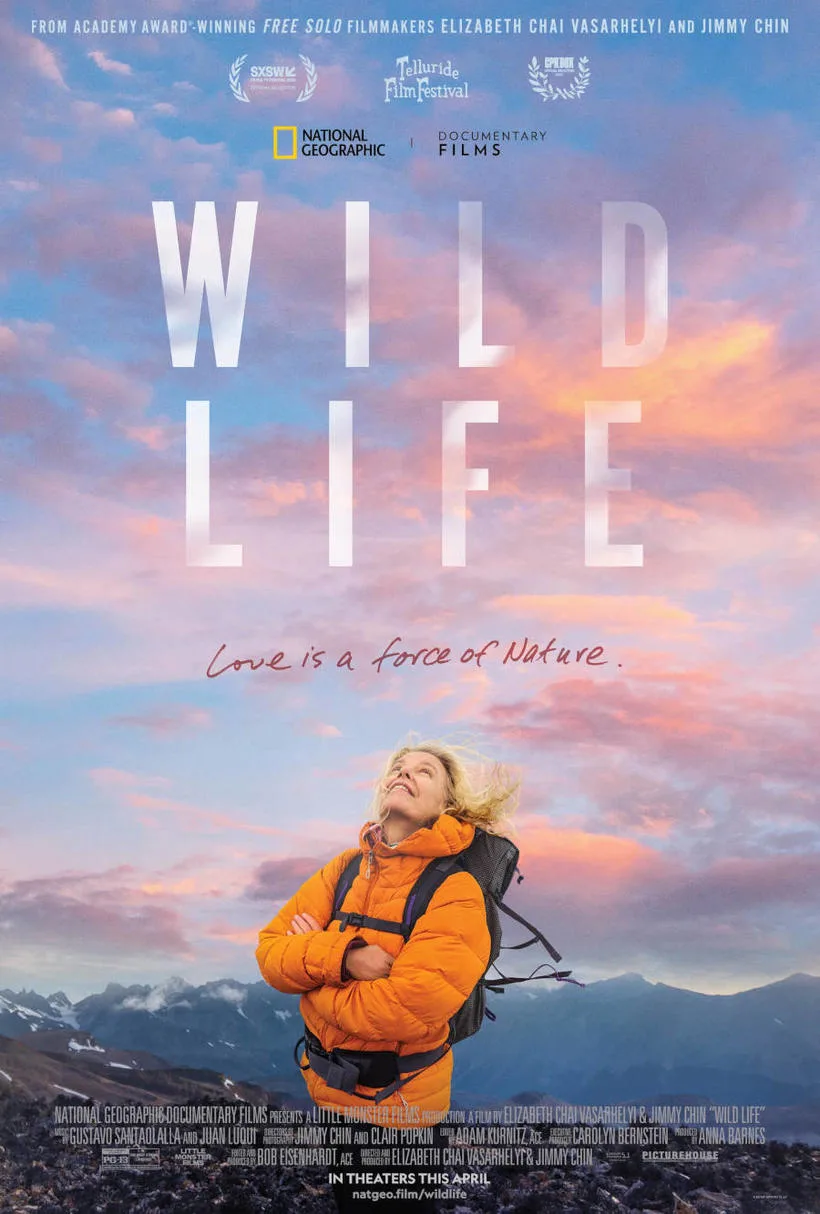“Wild Life” is the decades-spanning love story of two conservationists whose dedication to each other matched that of their affection for our planet. Starting in 1993, risk-takers and seasoned business personalities Doug and Kris Tompkins used their millions (accrued from leading outdoor companies The North Face/Esprit and Patagonia, respectively) to preserve the ecological grandeur of millions of acres in Chile and Argentina by turning them into national parks. Doug and Kris are forces of nature in their own right, and their swelling saga has the grandiosity of the land they worked to preserve.
The documentary is told with humbled awe by one of their friends, Jimmy Chin, who co-directs this film with long-time collaborator and wife Elizabeth Chai Vasarhelyi. We know that Chin is close with them as he appears early on-camera in the movie, taking a hike with Kris through the land at stake and which holds great, humbling beauty as either a backdrop or the subject of a drone shot. Chin did a similar hike with Doug before he passed in 2015. It becomes fitting how the movie, shot over five years, is loosely framed around this excursion that Chin did with Kris and their other friends (there’s even some geeky gear talk before they begin, for good measure). While it has a personal touch of a love letter, this documentary is nonetheless the work of compassionate filmmakers who know any adventure when they see one.
Though it has far less threat of vertigo as with their Oscar-winning documentary “Free Solo,” thrill-seeking documentarians Chin and Vasarhelyi share this story with their usual care and smart calculation. It’s just as much a survival adventure, but it’s that of the planet. And it’s still about risk takers out in the world, as Douglas and Kris worked to purchase millions of acres of land in Chile to turn them into national parks and to save them from being mined or destroyed. The film covers a good deal of territory, all in 93 minutes. It’s a steady stroll, with some more contemplative passages than others, but Chin and Vasarhelyi keep the pace.
Chin and Vasarhelyi have a first-name familiarity with their subjects that goes deeper than a typical director-subject relationship, but they also seem to know Doug and Kris by their pet names, Lolo and Birdy. In the film’s sweetest sequences, we learn about their massive affection for each other and how Doug courted former Patagonia CEO Kris when they were both deep into their business ventures and not yet philanthropists. Kris shares these stories with a glint in her eye, and Chin and Vasarhelyi accompany these moments with their personal messages to each other.
Doug is fondly remembered in this movie, and we learn at the story’s beginning about his passing in 2015. His side of the story is told by Kris and by select talking head interviews with their mutual friends like famed climber Rick Ridgeway and Yvon Chouinard (the founder of Patagonia, who donated the $3 billion company to help fight climate change in 2022). Doug was a hiker, a surfer, and a bold adventurer who stumbled into a business trajectory that led to co-founding The North Face and Esprit (the movie glosses over how one could go from being a hiking bum to becoming business-savvy, despite many people doing just that) and made him millions. But that pursuit did not hold his passion, and he found a new one in his bold, controversial way of combating climate change.
A story like this requires the nuance with which it is treated here, and “Wild Life” avoids becoming an ideological advertisement or biography about the people behind these beloved outdoor companies. And in revisiting this saga, which could have turned into a story of colonization, “Wild Life” is also convincing about how sincere these wealthy Americans were about buying Chilean land for the betterment of the Chilean people. Some of the movie even forays into clarifying what they would do—giving their millions, introducing farming, and later re-wilding. But the film understands why Chile would be so resistant. As one expert interviewed here says, “Mining is the salary of Chile.” Still, even when it gets into the mechanics of this preservation, “Wild Life” does not feel like it’s trying to sell you something any more than mindfulness about the planet’s well-being.
There is much to admire about the narrative told on its surface, but “Wild Life” earns its greater poignancy for the gently expressed poetry underneath. It’s about people finding new beginnings, like how the Tompkins changed course from business to trying to save the world or how Kris took on the work after he passed. Here is a warming, epic story that exemplifies how it’s not too late to make big changes—to find love in the middle of one’s life or (if one’s means allow it, certainly) to find a new passion. In its wider scope, “Wild Life” also offers hope we always need more of—it’s not too late to try and save the ecosystem that gifts us lovers like Lolo and Birdy.
Now playing in theaters.




















